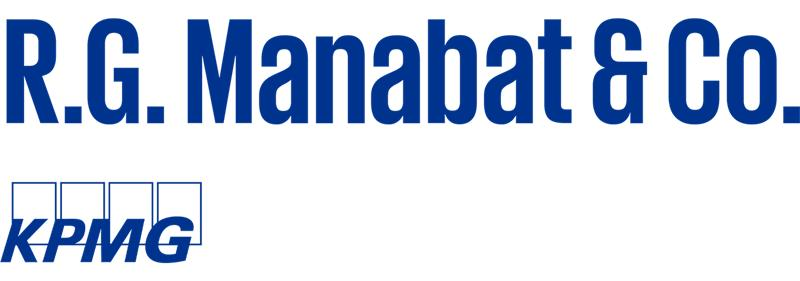Today, both companies and consumers are well into their digital transformation journey, as evidenced by the massive shift towards digital platforms. This is evidenced by the massive shift towards digital platforms for companies and consumers alike. A few notable examples of this shift are surges in online shopping and sales, increasingly curated user experiences, as well as companies leveraging data and artificial intelligence (AI) to streamline processes and drive strategic advantage. This suggests that the current wave of retail digitalization will only accelerate in the years ahead.
The Philippine Retailers Association’s (PRA) 31st National Retail Conference and Expo (NRCE), held from 31 July to 1 August 2025 at the SMX Convention Center Manila, reinforced these insights through discussions led by experts and industry leaders. In Asia, this shift is most visible in the rise of e-commerce and social media, which increasingly shape the perceptions and purchasing behavior of a Gen Z-heavy market, a demographic that spends a significant amount of time and money online. I was privileged to speak at this event together with KPMG ASPAC Head of Consumer and Retail Anson Bailey. In his talk, Anson highlighted how companies need to directly respond to the millions of Gen Z consumers in the region, emphasizing the sheer size and potential of this chronically online demographic. He urged companies to continually curate experiences both online and offline to effectively deliver value to this segment, detailing the power of social media platforms to influence sales and conversions through seamless online payments and curated content, as well as the many videos and livestreams on platforms, with e-commerce redirects and onboard shopping functionalities. This rings exceptionally true for the Philippine market, with online shopping platforms contributing to a $28 billion uptick in the Philippines’ e-commerce market in 2024. He also talked about the many possibilities that emerging technologies have for augmenting customer experiences, improving personalization, optimizing supply chains, and navigating tariffs, all of which the Philippines needs to be at the top of to satisfy the demands of a large and responsive Filipino market.
The Philippines has been keeping up with current paradigm shifts in both the technology and retail sectors, aligning new technology with the enterprising Filipino spirit. In my discussion at the NRCE, I highlighted various developments in this current phase of the Philippines’ digital transformation, citing the widespread use of cashless payments in transactions at different levels of the economy, from conglomerates down to neighborhood sari-sari stores, robotic contactless coffee options, and AI-optimized agricultural supply chains, to name a few. I also outlined the road ahead for the Philippine retail sector, citing technologies like geofencing as a new way to address touchpoints, immersive metaverse shopping experiences, and AI-powered,
sentiment-driven sales with pinpoint facial tracking features. It is apparent that the Philippines’ responsive and ever-growing customer demographics respond well to advancements in technology, valuing its ease of use, accessibility, and a virtually endless array of options for both consumers and businesses, as evidenced by the country’s digital economy contributing 8.5% to the country’s GDP in 2024.
However, there are still many who continue to be on the fence when it comes to AI, with 60% expressing concerns over the level of control that AI technology providers have over their businesses, according to a recent KPMG publication. According to that same publication, 85% believe that AI-enabled retailers will hold a competitive advantage over traditional retailers. Wherever you are on that spectrum, the facts remain clear: AI is instrumental to our current path towards economic progress and technological growth, and this is true for the Philippines as it undergoes digital transformation across different sectors. The future of retail is digital, automated, and insight driven. To those still wary of AI’s perceived risks, I encourage a shift in perspective: view technologies not just as costs, but as catalysts for customer experience, efficiency, and growth. In this new retail landscape, the ones who dare to chart a course towards growth are the only ones who will achieve the growth they want. Future-forward Philippine retail companies must continue to adapt boldly, or risk being left behind. Beyond the buzz surrounding new technologies in retail, there lies a deeper truth about the Philippine economy. This sector is but a microcosm of a larger variable that has been a mainstay in our culture and consciousness, because Philippine retail and digital transformation transcends a mere upgrade; it embodies the bayanihan spirit, seamlessly connecting communities and cultivating commerce, pixel by personalized pixel.
Gilbert T. Trinchera is a Technology Consulting Partner at R.G. Manabat & Co. (KPMG in the Philippines), a Philippine partnership and a member firm of the KPMG global organization of independent member firms affiliated with KPMG International Limited, a private English company limited by guarantee. For more information, you may reach out to Gilbert through ph-kpmgmla@kpmg.com, social media or visit www.home.kpmg/ph.
This article is for general information purposes only and should not be considered as professional advice to a specific issue or entity. The views and opinions expressed herein are those of the author and do not necessarily represent KPMG International or R.G. Manabat & Co.


